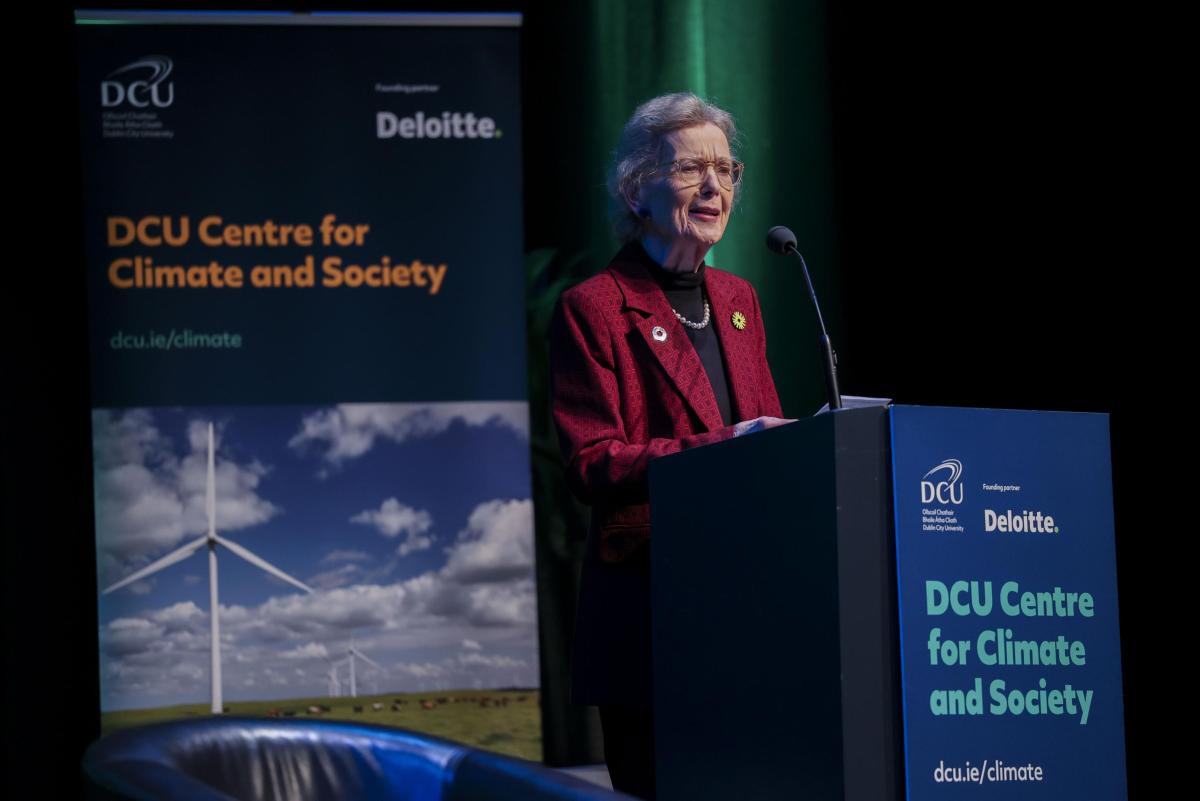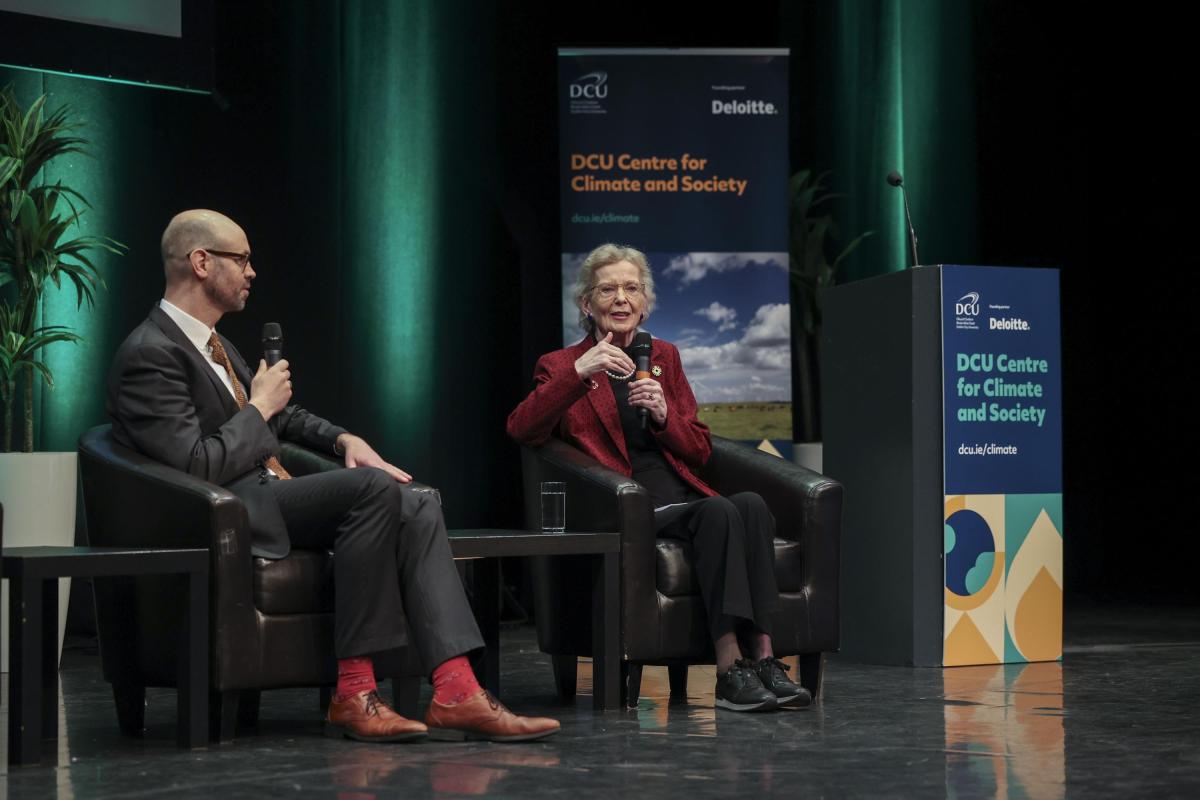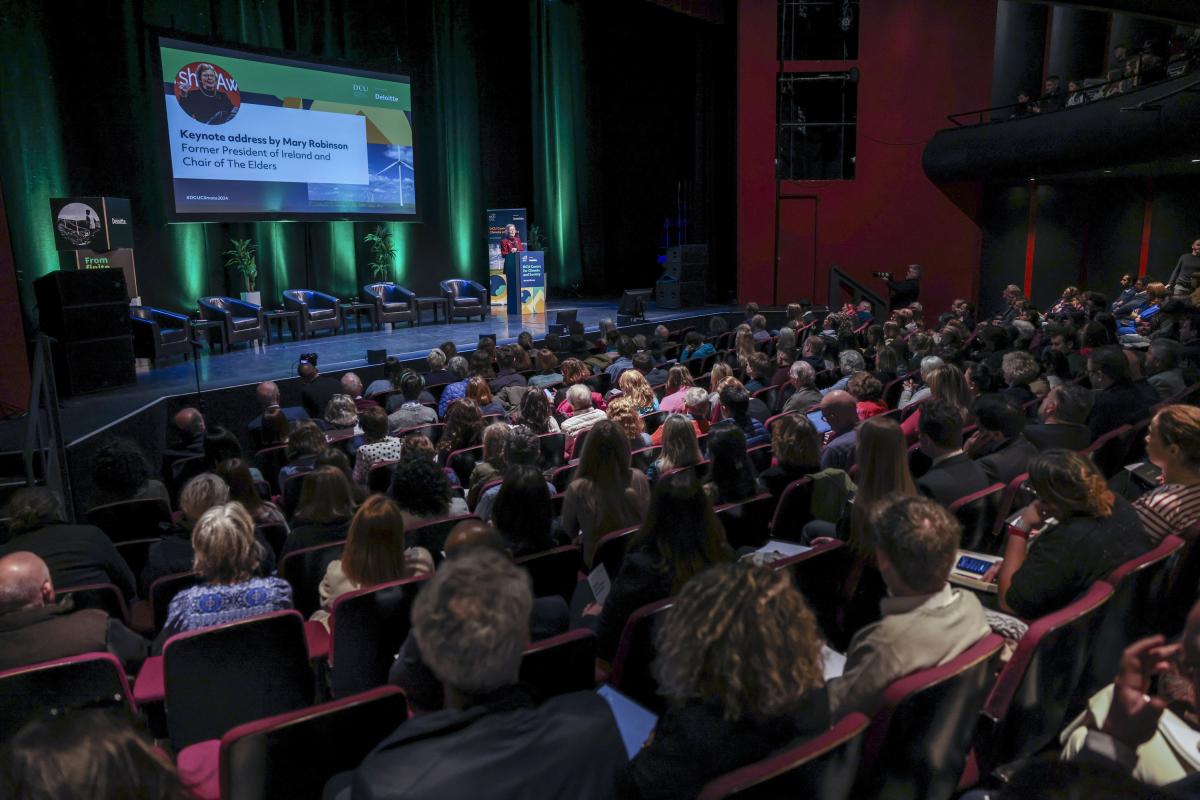

Former President of Ireland Mary Robinson addresses DCU Centre for Climate and Society Conference
Mary Robinson told the DCU Centre for Climate and Society conference that The Elders “believe very strongly” in intergenerational conversations in addressing the climate crisis, and echoed Kofi Annan’s words when telling those present that “you are never too young to lead, and never too old to learn”.
The third annual DCU Centre for Climate and Society conference, entitled ‘Climate Justice Across Generations’, is taking place at The Helix on the Dublin City University Glasnevin Campus today, Tuesday 16 April.
Former President of Ireland and Chair of the Elders Mary Robinson addressed more than 400 attendees, including politicians, policy-makers, journalists, academics and members of the public.
Other speakers at the conference include participants in Ireland’s Children and Young People’s Assembly on Biodiversity Loss, and Ella Saltmarshe, co-founder of The Long Time Project.
Giving her keynote address this morning, Mrs Robinson said
“The Elders… believe very strongly in intergenerational discussion, intergenerational conversation, because the generations learn from each other. If you go onto the website of The Elders, you’ll see blogs by young people and you’ll see a great deal of intergenerational conversation because as Elders we realise the world has changed, young people are very socially connected, they communicate across the world in a way that wasn’t possible when we were growing up. There’s a real sense of identifying with those who are more affected and need the attention of other young people who want their own countries to change but also have a sense of that solidarity with young people.”
Mrs Robinson also called for leaders to adopt a more long-term approach to solving crises facing the world, including climate change;
“(Long-term thinking) is also something that The Elders have recently been promoting very strongly, what we call for is long-view leadership. Long-view leadership is leadership that actually tries to address very serious existential threats, like the climate and nature crisis, like the pandemic crisis because we are still not coming well out of Covid, we’re not ready for the next pandemic, and thirdly nuclear weapons. So we want long-view leadership, looking also at the potential of Artificial Intelligence across those three existential threats.”

Opening the conference, President of DCU Professor Dáire Keogh said
“In 1990, the year in which Mary Robinson was elected President of Ireland, the UN Intergovernmental Panel on Climate Change published its first report. The alarm bells were ringing then, and they have only gotten louder. Over the past 30-plus years, Mary Robinson has been one of the world’s clearest and most consistent voices on the need for climate action and we are delighted and privileged to have her with us here today.”
Director of the DCU Centre for Climate and Society Diarmuid Torney said
"Our conference today aims to draw our attention to the many inequities that characterise the climate and biodiversity emergencies, and our responses to them. Our focus on climate justice between generations is particularly timely. This September in New York, the United Nations Summit of the Future will bring together world leaders to seek to forge a new international consensus on how we deliver a better present and safeguard the future. We hope that today’s conference will help us to unpack and reflect more deeply on how to achieve climate justice between older and younger generations, and between those alive today and future generations."
Glenn Gillard, Partner, and Sustainability Market Lead with Deloitte (founding partner of the DCU Centre for Climate and Society) said
“Climate action across the business sector must be accelerated to drive systemic change, and collaboration across the public and private sectors, as well as with institutions and non-governmental organisations is vital to driving that change. Through Deloitte’s partnership with DCU, we are bringing together expertise from different social arenas like politics, media, education and business to examine how they can influence climate action.
“As business leaders, we have a role to play in driving this collaboration and progress, and today’s conference presents an opportunity to continue the discussions for action on the inequalities generated by the climate crisis.”

